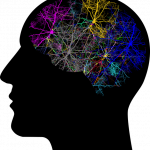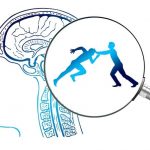Looking to take your physical and mental performance to the next level? Whether you’re an athlete, a business professional, or just seeking personal growth, there are advanced strategies that can help you optimize your performance.
With the right tools and techniques, you can enhance your cognitive abilities, improve your physical fitness, and achieve your goals with greater ease.
In this article, we’ll explore some of the most effective strategies for optimizing physical and mental performance. From high-intensity interval training to mindfulness and meditation, we’ll delve into the science behind these techniques and provide practical tips for incorporating them into your routine.
By the end of this article, you’ll have a comprehensive understanding of the tools you can use to enhance your performance and achieve your fullest potential.
High-Intensity Interval Training
 You’re about to discover how to push your body to its limits and achieve incredible results with high-intensity interval training (HIIT).
You’re about to discover how to push your body to its limits and achieve incredible results with high-intensity interval training (HIIT).
If you’re looking to take your physical performance to the next level, HIIT is the way to go. This type of training involves short bursts of intense exercise followed by periods of rest, and it has been shown to improve cardiovascular health, increase muscle mass, and even boost cognitive function.
There are many variations of HIIT that you can incorporate into your workout routine, such as Tabata, Fartlek, and Pyramid. Each of these variations has its own unique benefits and challenges, so it’s important to find the one that works best for you.
Additionally, it’s important to practice proper form and technique to prevent injury. By gradually increasing the intensity and duration of your HIIT workouts, you can safely and effectively improve your physical performance.
HIIT isn’t just great for your physical health – it can also boost your mental performance. Research has shown that HIIT can improve cognitive function, increase focus and attention, and even reduce symptoms of anxiety and depression.
So, if you’re looking to optimize both your physical and mental performance, give high-intensity interval training a try. With a little dedication and hard work, you’ll be amazed at what you can achieve.
Cognitive Enhancements through Nutrition
Boost your brain power with the right foods and supplements in order to enhance your cognitive abilities. Nutrient timing is the key to maximizing the benefits of the food you consume. Eating certain foods at the right time can help boost your brain power and improve your mental performance.
Here are some brain-boosting foods and supplements you can incorporate into your diet:
- Omega-3 Fatty Acids: These are essential for brain function and play a role in improving memory and cognitive function. You can find them in fatty fish, such as salmon, nuts and seeds like flaxseeds and walnuts, and supplements like fish oil.
- Blueberries: These are rich in antioxidants and have been shown to improve memory and cognitive function. Add them to your smoothies or oatmeal, or snack on them throughout the day.
- Caffeine: This is a natural stimulant that can improve alertness and concentration. You can get caffeine from coffee, tea, or supplements like caffeine pills.
In addition to nutrient timing and brain-boosting foods, there are other ways to enhance your cognitive abilities through nutrition. One way is to avoid processed foods and sugar, as they can lead to inflammation and impair brain function.
Another way is to stay hydrated by drinking plenty of water throughout the day, as dehydration can negatively impact cognitive function.
Overall, incorporating brain-boosting foods and supplements into your diet and paying attention to nutrient timing can help enhance your cognitive abilities. By making small changes to your nutrition, you can improve your mental performance and boost your brain power.
Mindfulness and Meditation for Mental Clarity
Take a moment to clear your mind and improve your mental clarity through mindfulness and meditation. These practices are powerful tools that can help you reduce stress, increase focus, and boost your overall well-being.
Mindfulness involves paying attention to the present moment without judgment, while meditation is a technique that involves focusing your attention on a particular object, thought, or activity. One of the key components of mindfulness and meditation is breathing techniques. By consciously breathing in and out, you can calm your mind, reduce anxiety, and improve your overall mental clarity.
One popular technique is called diaphragmatic breathing, which involves taking slow, deep breaths from the belly rather than shallow breaths from the chest. This technique can help you relax, decrease muscle tension, and improve your concentration. Another way to incorporate mindfulness into your daily routine is through mindful movement.
This can be any form of movement that you do with awareness and intention, such as yoga, tai chi, or even just walking. Mindful movement can help you connect with your body and increase your awareness of your physical sensations. By focusing on the present moment and being fully present in your body, you can reduce stress and improve your mental clarity.
So, take a moment to incorporate these practices into your daily routine, and see how they can help you optimize your physical and mental performance. Remember, mindfulness and meditation are powerful tools that can help you improve your mental clarity and overall well-being. By incorporating breathing techniques and mindful movement into your daily routine, you can reduce stress, increase focus, and boost your physical and mental performance.
So, take a few moments each day to clear your mind and connect with your body, and see how these practices can transform your life.
Sleep Optimization for Physical Recovery
Alright folks, let’s talk about getting some good ole shut-eye and how it can help us recover from all that wear and tear on our bodies.
Sleep quality plays a crucial role in physical recovery. You might think that just getting a few hours of sleep is enough, but the quality and duration of your sleep matter a lot. During sleep, your body repairs damaged tissues, replenishes energy, and regulates hormones. Therefore, poor sleep quality can impede your physical performance and increase the risk of injuries.
To optimize your sleep quality, you need to create a conducive sleep environment. Ensure that your bedroom is quiet, cool, and dark. Avoid exposure to electronic devices before bedtime, as the blue light can interfere with your circadian rhythm.
Additionally, post-workout nutrition can also affect your sleep quality. Consuming protein-rich foods and carbohydrates after a workout can help your body recover and prepare for sleep.
Incorporating sleep optimization into your routine can significantly improve your physical performance. Aim to get at least 7-9 hours of quality sleep every night. Additionally, establish a consistent sleep schedule and stick to it, even on weekends. If you have trouble falling asleep, try relaxation techniques like deep breathing or listening to calming music.
Remember, quality sleep is just as important as physical training and nutrition in achieving optimal physical performance.
Goal Setting and Tracking for Performance Improvement
Let’s talk about setting and tracking goals to improve your overall performance. Whether you’re an athlete, a business professional, or a student, having a clear set of goals and a plan to achieve them is crucial.
Setting SMART goals is a great way to ensure that your goals are specific, measurable, achievable, relevant, and time-bound. Without these criteria, your goals may be too vague or unrealistic, making it difficult to track progress and stay motivated.
To set SMART goals, start by identifying what you want to achieve and why it’s important to you. Next, break your goal down into smaller, more manageable tasks that you can work on over time. For example, if your goal is to run a marathon in six months, break it down into weekly or daily training sessions. This will make it easier to track your progress and adjust your plan as needed.
Measuring your performance metrics is also important when tracking your progress towards your goals. This can include tracking your time, distance, weight, or other relevant data points. By measuring your performance, you can identify areas where you’re making progress and areas where you need to improve. This will help you stay motivated and focused on achieving your goals.
Remember, setting and tracking goals is not a one-time event, but an ongoing process that requires dedication and effort. With the right mindset and approach, you can achieve anything you set your mind to.
What are some non-traditional methods for improving physical and mental performance?
If you’re looking for non-traditional methods to improve your physical and mental performance, two techniques worth considering are breathwork and sensory deprivation.
Breathwork techniques involve focusing on your breathing patterns and using them to regulate your mental state. This can help you manage stress, improve your focus, and even increase your physical endurance.
Sensory deprivation, on the other hand, involves reducing or eliminating all external stimuli, such as light and sound, to promote relaxation and mental clarity.
Both of these methods can be effective tools for optimizing your performance, whether you’re an athlete, a performer, or just looking to improve your overall well-being.
How can social support and community impact performance optimization?
If you’re looking to optimize your physical and mental performance, social support and community can play a crucial role.
Accountability partners and group training are two great ways to harness the power of community for better results. Accountability partners can help keep you motivated and on track towards your goals, while group training can provide a supportive and encouraging environment for pushing yourself to the next level.
By surrounding yourself with like-minded individuals who share your commitment to performance optimization, you can tap into a powerful source of motivation and inspiration that can help you achieve your goals more effectively than you ever could alone.
What role does genetics play in optimizing physical and mental performance?
Genetic testing can play a significant role in optimizing physical and mental performance. By understanding your genetic makeup, you can create personalized training and nutrition plans that are tailored to your unique needs.
However, it’s important to remember that genetics are just one piece of the puzzle. Nature vs. nurture also plays a role in performance optimization, as environmental factors such as social support and community can impact your overall performance.
While genetics can provide valuable insights, it’s crucial to take a holistic approach to optimizing your performance by incorporating a variety of factors into your training regimen.
What are some common misconceptions about optimizing performance that should be debunked?
When it comes to optimizing performance, there are a few common misconceptions that need to be debunked.
Firstly, many people believe that nutrition is all about counting calories, when in reality, the quality of the food you eat is just as important as the quantity. It’s also important to note that carbs are not the enemy, as they’re a crucial source of energy for your body.
Secondly, many people underestimate the importance of sleep in optimizing performance. Sleep is essential for proper cognitive and physical functioning, and cutting corners on sleep can actually hinder your performance.
So, if you want to optimize your performance, make sure you’re getting quality sleep and nourishing your body with nutrient-dense foods.
How can one overcome mental barriers and improve mental toughness for better performance?
To improve your mental toughness and overcome mental barriers, mental training techniques such as imagery can be extremely helpful. You can visualize yourself succeeding in your chosen activity using imagery, whether it’s a sport or a presentation at work. This technique can help you build confidence and reduce anxiety, ultimately leading to better performance.
Another strategy is goal setting. It involves setting realistic, achievable goals for yourself and working towards them in a structured manner. This can help you stay motivated and focused, as well as provide a sense of accomplishment when you reach your goals.
By incorporating these mental training techniques and goal setting strategies into your routine, you can improve your mental toughness and optimize your performance.
You’ve just learned about some advanced strategies for optimizing your physical and mental performance. By implementing these techniques, you can take your performance to the next level and achieve your goals with ease.
One thing to keep in mind is that optimizing your performance requires a lot of hard work and dedication. However, with the right mindset, tools, and techniques, you can make the journey enjoyable and rewarding.
Remember, it’s not just about achieving your goals, but also about enjoying the process and learning from your mistakes.
Advanced strategies for optimizing physical and mental performance are essential for anyone who wants to achieve their goals and live a fulfilling life. By incorporating high-intensity interval training, cognitive enhancements through nutrition, mindfulness and meditation, sleep optimization, and goal setting and tracking into your routine, you can achieve optimal performance and become the best version of yourself.
So, go ahead and take the first step towards optimizing your performance today!






